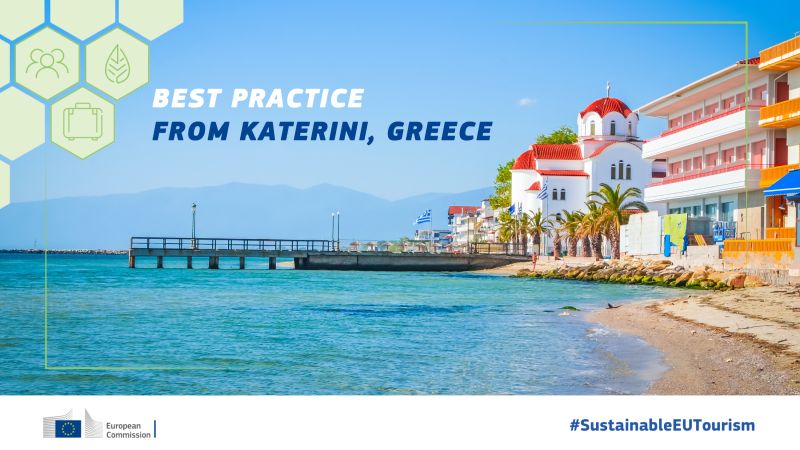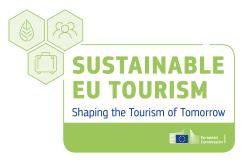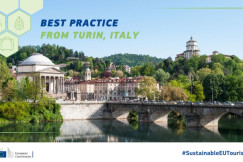Best practices
18 June 2025
Sustainable EU Tourism project - best practice: Katerini
Best practices
18 June 2025
Coastal, maritime and inland water tourism
Cultural tourism
Health and medical tourism
+8 more
Login / create an account to be able to react
-
5

Katerini, located in the Pieria region of Greece, is positioning itself as an accessible tourism destination by leveraging innovative technologies like Seatrac, barrier-free infrastructure and community-led initiatives. By prioritising inclusivity and enhancing services for people with disabilities, the city aims to make tourism more equitable, competitive, and sustainable
Topics
Greece
Destination Management & Marketing Organisations
Local Authorities
-
Specific types of tourism
-
-
Coastal, maritime and inland water tourism
-
Cultural tourism
-
Health and medical tourism
-
Mountain tourism
-
Wellness tourism
-
-
Transition Pathway Strategic Areas
-
-
Accessible tourism services
-
Best practices, peer learning and networking
-
-
Business activities
-
-
Activities of associations and other organisations supporting tourism
-
Hotel and similar accommodation
-
Other
-
Water (sea, coastal and inland) passenger transport
-
Share
Katerini, located in the Pieria region of Greece, has been recognised as a best practice by the Sustainable EU Tourism project for its strong commitment to accessible tourism.
In response to growing demand - particularly from older and disabled travellers, who represent a significant share of the European population - the municipality launched an inclusive tourism strategy in 2021 that combines cutting-edge infrastructure with community involvement. In fact, Katerini installed five Seatracs, solar-powered systems that allow individuals with mobility impairments to access the sea independently. These installations are complemented by accessible showers, toilets, and changing rooms, with plans to expand services for visually impaired people. Additionally, two specialised hotels are currently under construction.
To support and maintain these services, the Destination Management Organisation (DMO) launched the “Citizens for the Seatracs Volunteer Team” in 2021 - a self-governing group with over 100 members who provide assistance, troubleshoot issues, and promote inclusion through social media and local events. Additionally, the municipality ran targeted communication campaigns, including brochures, videos, and radio spots focused on accessible tourism to raise awareness within the local community.
Katerini’s approach demonstrates how relatively modest investments - supported by strong local engagement and political will - can significantly improve tourism access and inclusiveness.
For more details on the key challenges the destination has faced, and the solutions implemented to address them, please refer to the attached document.
#Destination management #Innovation in tourism #Tourism development #Adaptation strategies #Community engagement #Sustainable tourism
Documents
Comments (0)
Related content
See also
-
13
Sustainable EU Tourism - Key challenges and best practices
- Categories
- Coastal, maritime and inland water tourism Cultural tourism Ecotourism +64 more
-
5
Best practices for inclusive workplaces: Supporting employees with disabilities
- Categories
- Coastal, maritime and inland water tourism Cultural tourism Ecotourism +41 more
-
22
Advancing accessible tourism: the In-Tour project’s innovative training for Inclusive Tourism Professionals
- Categories
- Coastal, maritime and inland water tourism Cultural tourism Ecotourism +39 more






